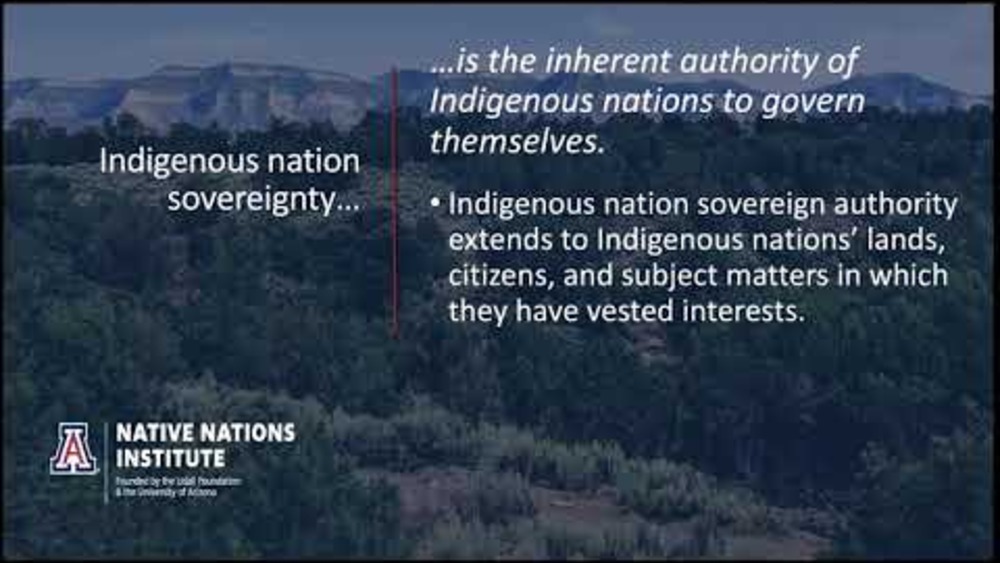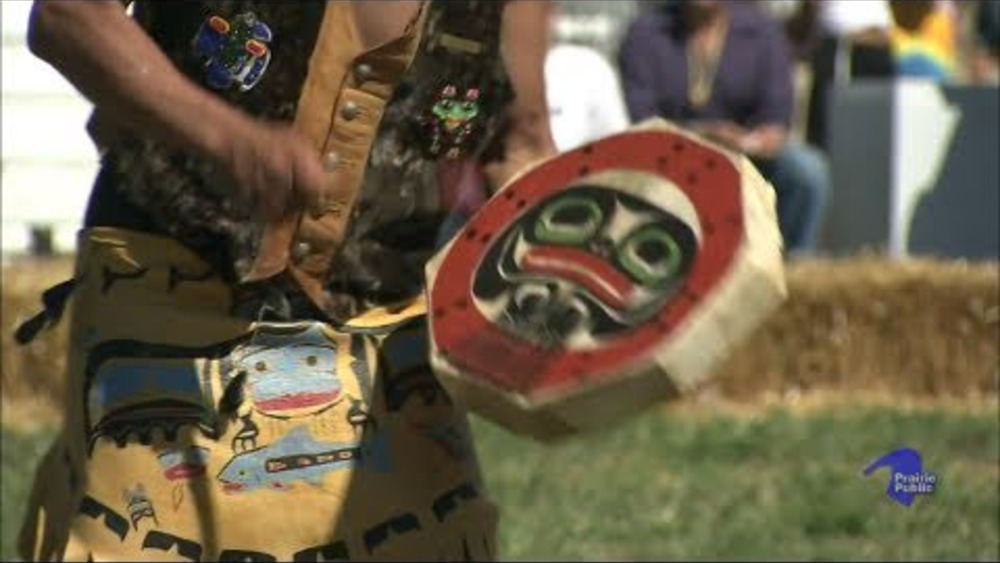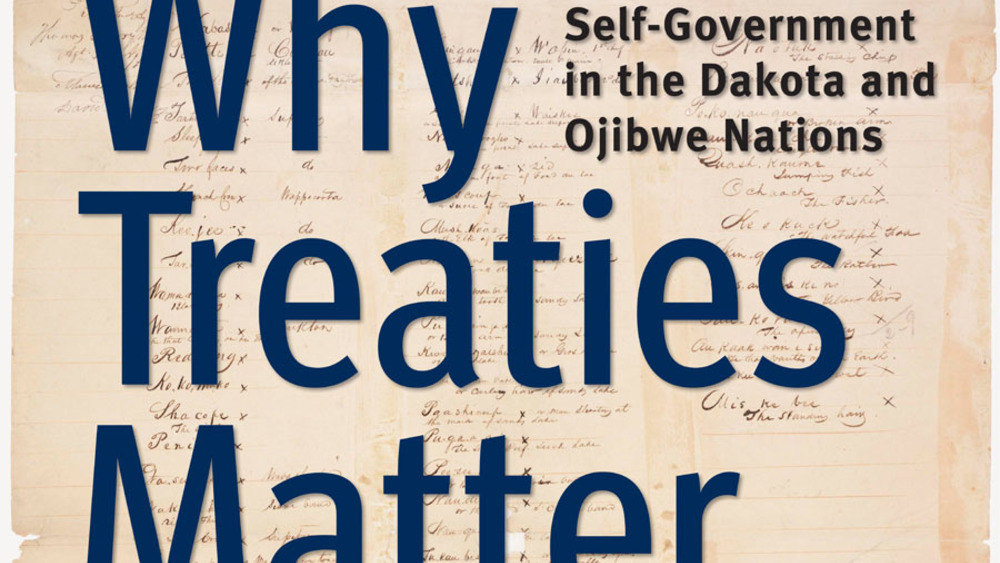Historically, intertribal relationships helped to maintain diplomacy and peace prior to the existence of the United States government. How can Native nations’ ethical and cultural values aid in today’s political climate? Produced in partnership with Twin Cities PBS and producer/director Missy Whiteman. Special thanks to Mille Lacs Indian Museum and Trading Post, the Mille Lacs Band of Ojibwe, Bradley Harrington, and Byron Ninham.
Additional Information
Native Governance Center. 2018. "Native Treaties: Making Relations." Produced in partnership with TPT-Twin Cities PBS and producer/director Missy Whiteman. St. Paul, Minnesota. Video. (https://www.youtube.com/watch?v=aurUURaeoPo&t=3s, accessed May 30, 2024)



